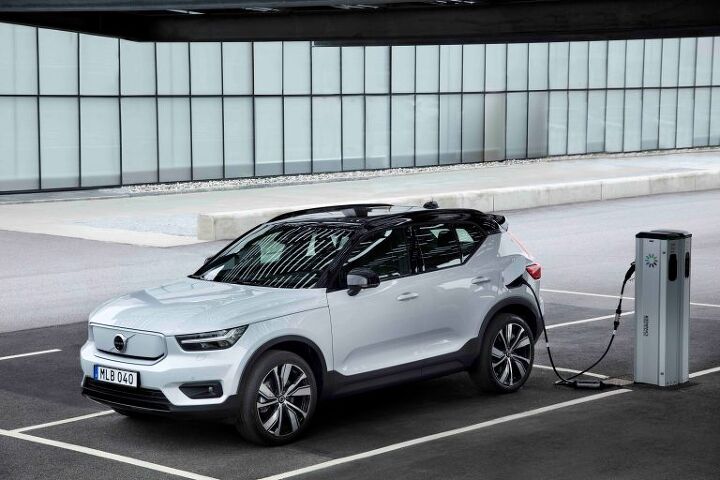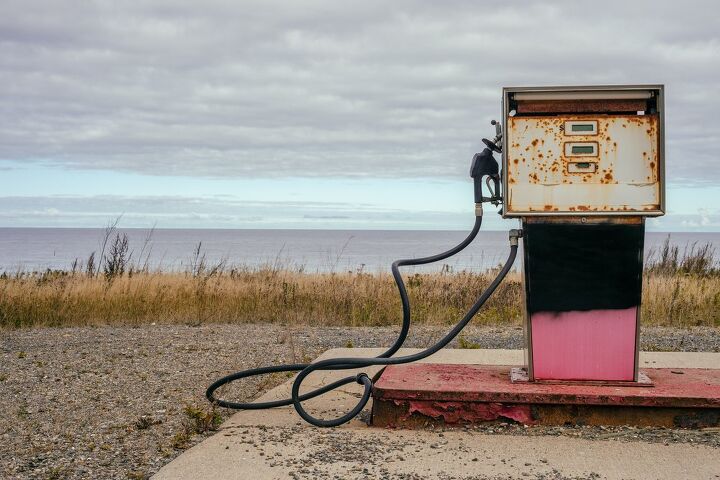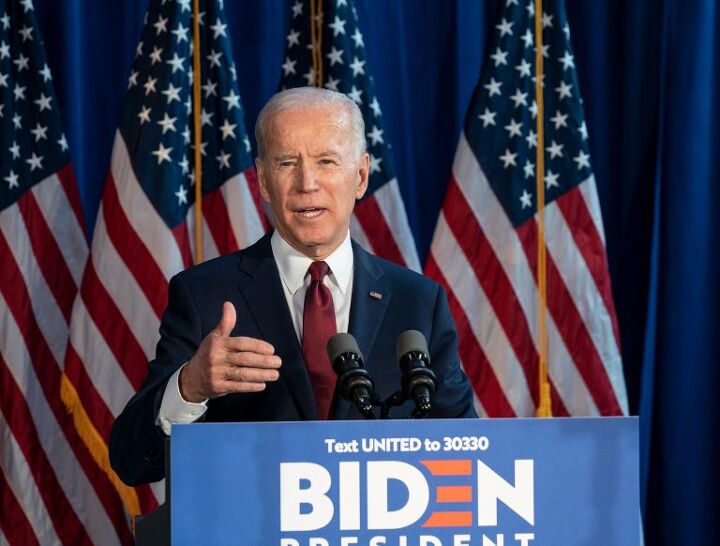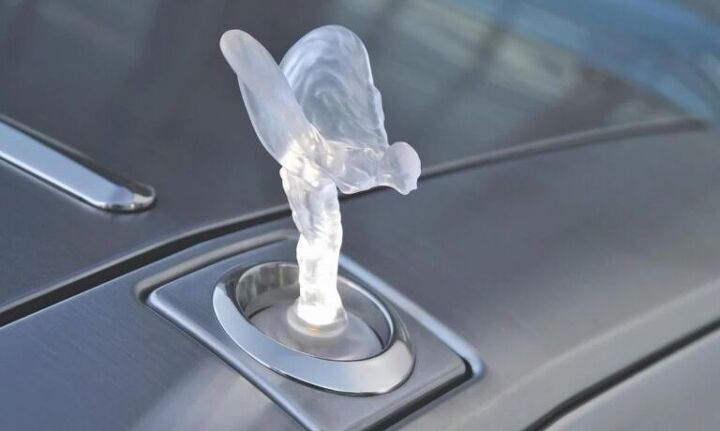#Regulation
Report: Japan May Ban Internal Combustion Vehicles Next Decade
The Japan Broadcasting Corporation, better known as NHK, reported that the island nation is considering banning new internal combustion engine cars by the mid-2030s this week. While we will continue to maintain that such an effort seems unrealistic when confronting the current realities of the market, Japan’s alleged plan offers a bit more leeway than proposals pitched in parts of Europe and North America. Nippon also finds itself in a better position in the preferred mixed approach of allowing mixed powertrains, which would allow the industry to continue production gasoline-driven hybrids.
For starters, the Asian country has a fairly comprehensive hydrogen fueling network thanks to its small size. It’s also in a position that would make nationwide EV charging more feasible than regions with plenty of wide-open spaces. But automakers aren’t making a peep on the issue, preferring to leave it up to regulators and the market.
Volvo CEO Says Governments Should Just Ban Gasoline Powered Cars
Volvo Cars’ chief executive, Håkan Samuelsson, believes a ban on gasoline-driven vehicles would be a more effective way to force groups to go electric than continuing to offer subsidies on battery-powered automobiles. The announcement comes as part of the Financial Times’ “Future of the Car Summit,” where Samuelsson will proclaim the internal combustion engine “a technology of the past.”
In related news, Volvo Cars is also in negotiations to merge with China’s Geely Automotive and has renewed its commitment toward becoming an electric-only brand by 2030. The latter issue will also be brought up during Wednesday’s Car Summit, with the CEO praising the United Kingdom’s promise to eliminate the sale of new gasoline and diesel cars that same year.
What miraculously convenient timing.
Gas War: Ford Urges Other Automakers to Join the Californian Coalition
The Ford Motor Company is asking automakers to join it in supporting Californian vehicle emissions targets aimed at supplanting the rollback that was supposed to become the national standard. General Motors has already abandoned its support of the Trump rollbacks, which offered concessions to appease environmental groups but ultimately targeted more lax fueling regulation while seeking to eliminate California’s ability to self regulate as a way to curb its influence. But industry leaders are under the impression that a President Biden would attempt to swiftly transmission back to Obama-era regulatory targets or simply adopt the California model that’s been at odds with the national standards established by the Trump administration.
Considering how aggressive the Biden-Harris energy/environmentalism platform is, it certainly seems a plausible scenario and certain automotive executives feel that it would be best to go into 2021 aligned and supportive. The matter is even scheduled to be brought forward during Tuesday’s virtual auto trade association meeting.
GM Switches Sides in the Gas War, Joins California/Biden
General Motors has changed its mind on backing the Trump administration’s effort to supplant Obama-era emission regulations with something more manageable and prohibit California from setting its own emissions rules. Of course, the coastal rules aren’t really just for California — it desperately wants to export them to the rest of the country and has made rather incredible headway for not being the federal government. The coastal region has already convinced over 20 states to follow in its footsteps and even amassed support from auto manufacturers like BMW, Ford, Honda, and Volkswagen Group.
Other automakers, including General Motors, felt the Trump plan would give them more flexibility and undoubtedly make them less subject to government fines. However, with a Biden presidency assured without Trump and Co. having an extremely powerful voter fraud case, GM has become a turncoat. On Monday, CEO Mary Barra issued a letter to environmental groups stating that her company is “immediately withdrawing from the preemption litigation and inviting other automakers to join us.”
GM now wants to work with Joe Biden — probably because the company understands his administration is going to be regulating the snot out of the nation.
NHTSA Begins Regulatory Proceedings for Autonomous Safety, You Can Help
Safety regulators with the National Highway Traffic Safety Administration (NHTSA) said they were opening formal regulatory proceedings to establish new safety standards for autonomous vehicles on Thursday. However, before the NHTSA can get into proposing new rules that will influence how cars that can control themselves will be handled by the U.S. government, it wants citizens to offer their two cents.
We’re talking specifically about Levels 3-5 of automation as defined by SAE, meaning cars that could someday be sold without steering wheels or any other means to take control of the vehicle yourself. It’s something industrial lobbyists with the Alliance for Automotive Innovation (AAI) already have a roadmap for and plan on sharing with the NHTSA soon. Based on the group’s previous initiatives, we imagine it’ll be advocating the government leave as much control in the hands of manufacturers as possible. But you’ll have a limited window to weigh in on that position (or, better yet, share your own) while regulators have an open request for public comment.
NHTSA Upgrades Safety Probe Into 159,000 Tesla Vehicles
On Monday, the National Highway Traffic Safety Administration (NHTSA) announced it would be upgrading a probe into almost 159,000 Tesla Model S and Model X vehicles relating to touchscreen/memory issues that could result in a failure to comply with federal standards.
U.S. regulatory mandates stipulate that modern vehicles be required to have rear-camera displays to aid drivers traveling in reverse. The expanded investigation has tripled in size and now encompasses 2012-2018 model year Tesla Model S and 2016-2018 Model X vehicles, which may be eligible for a recall if the NHTSA sees fit.
Quebec Banning Gasoline Dependent Passenger Vehicles in 2035
On Monday, the Canadian province of Quebec announced it would be joining California and numerous European locales in the banning of gasoline-powered automobiles. Announced during a meeting regarding the region’s green economy plan, the French-speaking province said all new vehicles sold after 2035 would have to be entirely electric. Then there was a slight derailment as Premier François Legault used the occasion to publicly decry that it was “totally unacceptable” that some shop owners in Montreal are failing to greet customers in French and that the situation needed to be remedied immediately. Montreal Mayor Valérie Plante agreed, saying “clients must be able to get served in French. Period.”
One battle at a time, heroes. Justice will be served (and in glorious French) to those English-speaking heathens and their foul-smelling cars soon enough.
Gas War: California Regulators Say Biden Should Embrace State's Emission Plan
While multiple states launch mandatory election recounts and President Trump throws around lawsuits like confetti Joe Biden and the mainstream media are preparing for his ascension from regular old man to Leader of the Free World — though that title doesn’t seem to get much play these days. Biden has already started holding meetings with foreign leaders and experts on how to go about heading the United States. Apparently, there’s even been some progress on how to govern the nation.
On Thursday, California Air Resources Board (CARB) Chairwoman Mary Nichols said the state’s arrangement with major automakers over fuel efficiency requirements would be ideal for the presumed Biden administration — which has promised to implement some of the most ambitious emissions standards the world has ever seen. Nichols also expressed excitement at the possibility of heading the U.S. Environmental Protection Agency (EPA) under a Biden presidency and is reportedly under serious consideration for the position.
Gas War: Biden Selects 'Obama All Stars' for Transportation Department, EPA
With America currently split between people arguing about how seriously the 2020 election needs to be investigated, there hasn’t been much in the news about cars beyond the omnipresent background hiss of manufacturers promoting green vehicles they have yet to build. That leaves us having to belly crawl through journalistic muck in the hopes of finding a morsel of useful information. Fortunately, we located a crumb worth saving in Joe Biden’s transition teams for the Environmental Protection Agency and Transportation Department.
A Biden administration means bringing back Obama all-stars in a concentrated effort to restore that era’s regulatory standards. That entails flipping just about every single initiative launched by President Trump, including the national fuel rollback that’s at the heart of the Gas War. Biden has also said he would reenter the Paris Climate Accords, gradually abandon fossil fuels, and “establish ambitious fuel economy standards” surpassing anything the nation has seen before.
Volkswagen CEO Says Biden Win Better Suits Corporate Goals
As the U.S. election devolves into deciding which political party committed the most fraud, Volkswagen CEO Herbert Diess said a victory by Democrat Joe Biden would be the ideal outcome for any German automakers seeking to mass-produce electric cars. Hardly surprising, considering the Biden-Harris campaign website says it would regulate the dickens out of fossil fuels, moving aggressively toward alternative energy sources and electrification while pressing other nations to do the same.
“A Democratic program probably would be more aligned with our worldwide strategy, which is really to fight climate change, to become electric,” the CEO told Bloomberg on Thursday.
FCA Could Face $840 Million in New U.S. Regulatory Fees
Fiat Chrysler Automobiles has said that it might be looking at $840 million if it wants to settle a Justice Department investigation into excess diesel emissions and threw some mild shade at regulators.
The manufacturer noted that the U.S. appeals court’s August ruling that overturned the Trump administration’s July 2019 rule that suspended a National Highway Traffic Safety Administration regulation more than doubling emissions penalties for automakers is playing a major factor in that sum. Obviously, it wishes they hadn’t.
California Urges Manufacturers to Tattle on Themselves
On Wednesday, the California Air Resources Board (CARB) urged manufacturers to disclose any unapproved hardware or software that might place a vehicle’s emissions outside of the acceptable parameters of legality. CARB said those who comply would be subjected to reduced penalties and reminded everyone that it’s going to be opening a state-of-the-art testing facility that will be better at catching cheaters in 2021. It’s so advanced, the board suggested it might even be able to catch totally new violations.
You’ve likely seen this tactic employed by an exasperated parent or substitute teacher. An illicit substance is found tucked away somewhere and they parade it around demanding whoever owns it to fess up immediately or face harsher consequences later. This obvious trap is best avoided by committing a lesser crime right then and there or being so obstinate that you’re issued a minor punishment just for being annoying — thus freeing you of suspicion for the pornography Mr. Lawson found taped beneath the bleachers.
EU Bans Rolls-Royce's Illuminated Spirit of Ecstasy for 'Light Pollution'
Those of you familiar with vintage motorcars will recall that there was once a period in history where hood ornaments weren’t the classy exception but the rule. Automakers have been affixing their corporate iconography to the top of vehicles since before there were seat belts, tapping members of the animal kingdom, indigenous leaders who opposed the British (back when such things were acceptable), winged letters of the alphabet, rocket ships, and just about everything else one could imagine wanting to stick atop an automobile. But most of those have been modified to suit the times and/or relocated onto the grille in an effort to avoid impaling pedestrians (Ed. note: And perhaps theft. I think my grandparents had the hood ornament stolen off their mid-’90s era Buick once. — TH).
While a few companies attempted to get around government safety regulations by implementing flexibly mounted hood ornaments designed to avoid stabbing the person you’ve already done the disservice of hitting with your car, just about all of them have given up the ghost by 2020. The only notable exception is Rolls-Royce, which has spent a fortune designing a spring-loaded device that snaps its famous Spirit of Ecstasy (aka the Flying Lady) down inside the engine bay whenever a moderate amount of force is applied.
The company has since decided to update its ornament to allow drivers to retract it on demand. It has also started offering a £3,500 option that makes Spirit of Ecstasy an illuminated crystal bauble that has suddenly run afoul of the European Union’s new light pollution regulations. Rolls-Royce will need to remove it from its brochures and customers will be forced to neuter their vehicles if they want to be compliant with the law.
Daimler Agrees to Pay $2.2 Billion Diesel Emissions Settlement
Daimler has officially agreed to pay $2.2 billion as a resolution to the United States’ diesel emissions cheating investigation and over 250,000 claims from Mercedes-Benz customers. The automaker stated that it was likely going to settle in August, estimating a need to set aside roughly $1.5 billion to appease U.S. authorities. Another $700 million was earmarked for civil suits, with the company assuming millions more would be needed to fulfill the requirements of the various settlements.
Court documents shared by Reuters show the company agreeing to pay 250,000 owners up to $3,290 each on vehicles that exceed regulatory emissions standards through the use of emissions cheating software. It also decided against opposing spending $83.4 million in attorney fees and expenses for the owners’ legal representation — something Volkswagen called “unwarranted” in a similarly sized suit where the attorneys were only asking for $59 million. However, VW’s emission woes have remained obnoxiously persistent since 2015 and have cost it well over $40 billion.
By contrast, Daimler is getting off with a slap on the wrist by settling for just a couple billion smackers. Although the likelihood of further criminal action remains relatively high in both the United States and Europe. Keep in mind that it took prosecutors nearly five years just to get this far and governments around the globe are disavowing diesel vehicles as if they appeared in a group photo on Jeffrey Epstein’s private island.
European Union Empowered to Recall Vehicles Over Emission Violations
Updated rules have granted the European Commission the ability to not only check cars for emissions compliance, but also issue recalls for those found in violation.
Previously, recalls were required to be issued by the EU member nations that initially certified the vehicles. But the European Commission claims this tactic has allowed automakers to easily circumvent regulatory mandates, making large-scale recalls slower to progress for almost a decade. Following Volkswagen’s diesel emissions scandal in 2015, the EU ramped up efforts to consolidate regulatory powers after the United States was the one that initially busted the German automaker for cheating during pollution tests.
The European Commission will now be able to enact recalls on its own authority and fine automakers up to 30,000 euros ($35,725 USD) per vehicle. Those in broad opposition of giving Brussels additional authority have criticized the changes, while those supportive of the EU claim it will be able to deliver environmental justice more swiftly than individual nations.






























Recent Comments